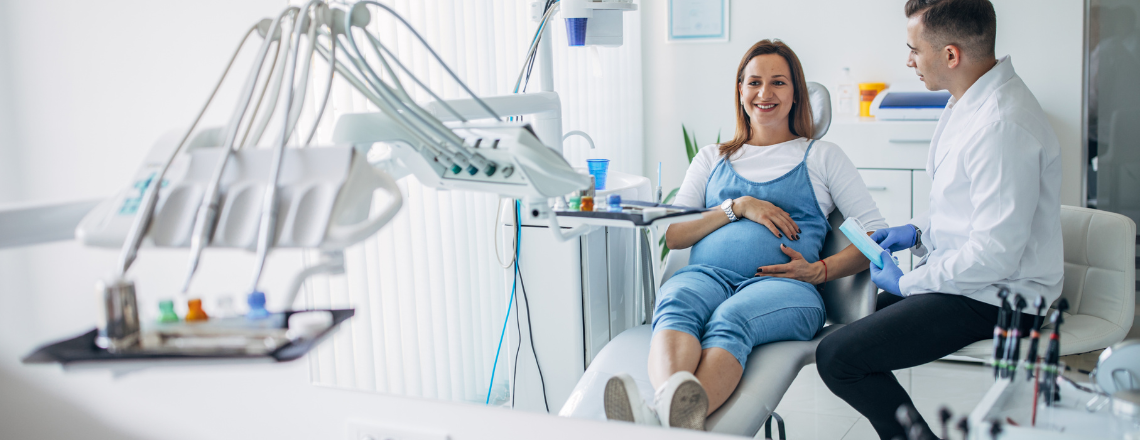
Do I Need to Go to the Dentist While Pregnant?
By: General Dentist Emily Skibinski
Oral Care While Pregnant
Despite 90 percent of women knowing that gum health while pregnant is important, only about 60 percent of women receive routine oral care while pregnant, according to a study conducted by BMC Oral Health.
For many women, knowing oral health is important while pregnant doesn’t equal a direct conversion to a routine teeth cleaning or check-in with their dentist. During pregnancy, the gums often become more sensitive and bleed more easily, causing women to feel embarrassed or even shameful to come into the dentist. Others may be worried about discomfort or nausea.
More than anything, it is important to seek preventative care, as women who are pregnant have a higher risk for gum caries, inflammation, and bleeding. Women may even be susceptible to pre-term labor, should they have poor oral health.
What Does Oral Care Look Like While Pregnant?
It is recommended by the American Dental Association that individuals receive routine cleanings twice a year, or every six months. During the year of pregnancy, women should have three cleanings. If an expecting mother needs dental work done, care providers often wait until late in the second trimester when women are more hormonally stable.
Any elective care can and should be put off until after the baby is born to eliminate any potential risk, though routine dental care while pregnant is essential and low-risk for the mom and baby.
Maintaining a high level of oral health is important for both the mother and child. There is a correlation between poor oral health and premature birth and/or low infant birth rate, specifically periodontal disease. The cause is bacteria in the mother’s mouth traveling through the bloodstream and into the placenta.
What to Look for When Pregnant
Often, sensitive and bleeding gums are the first sign of pregnancy as a result of the hormone increase and sensitivity to bacteria in the mouth. Nausea and vomiting also may have a negative impact on teeth and enamel. Maintaining positive oral health will reduce the side effects of pregnancy on teeth.
Because pregnancy increases the risk for certain oral diseases, expectant mothers must watch for symptoms of these diseases such as:
- An increase in swelling and bleeding in the gums beyond what is normal in pregnancy
- Pain when eating and chewing
- Bad breath
- Deep pockets between teeth and gums
- Receding gums
If you are planning to become pregnant, you should schedule any extensive dental work prior to conceiving. Once you become pregnant, you should schedule an appointment in the first trimester. While some dental care will be limited during pregnancy, ensuring great oral health prior to pregnancy will prevent emergency problems with limited pain options, in addition to the added health benefits for the mother and baby.
Meet Dr. Emily Skibinski
Dr. Skibinski is a general dentist at Dental Associates Franklin. Get to know Dr. Skibinski by visiting her profile page on DentalAssociates.com.
Visit her here: General Dentist Emily Skibinski
More information about prenatal and pediatric dentistry from Dental Associates
When Should I Take My Child to the Dentist

